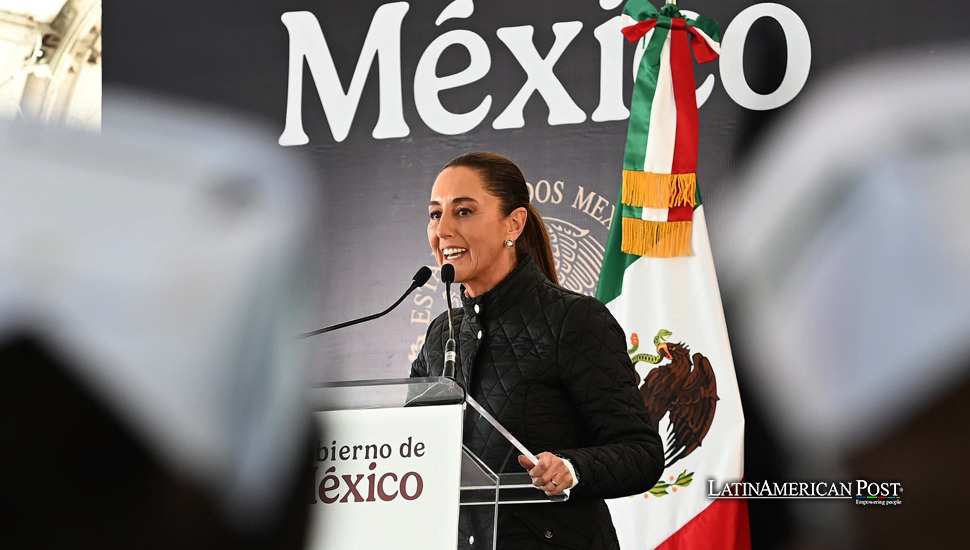Mexico Faces Trade Dispute Ruling Over Genetically Modified Corn

Mexico’s ban on genetically modified (GM) corn and glyphosate, aimed at protecting public health and cultural traditions, was overruled by a trade panel under the United States-Mexico-Canada Agreement (USMCA). The decision, welcomed by the United States and Canada, underscores the challenges of balancing trade obligations with domestic policies.
A Trade Ruling Against Mexico’s Unilateral Measures
A panel of three experts convened under the USMCA concluded that Mexico’s restrictions on GM corn violated the agreement’s provisions. The ruling stated that the measures were not supported by adequate scientific evidence or risk assessments, as required by the trade pact.
Mexico’s 2023 decree prohibited using GM corn for human consumption, including in staples like tortillas and mandated a gradual phase-out of GM corn in animal feed and industrial applications. The panel’s report noted that these measures failed to meet international scientific standards.
“There is also no indication of which data collection and information methods were used,” the report stated, pointing to a lack of transparency in data collection and risk evaluation processes. It said Mexican officials discovered no pest risks from GM corn and didn’t say why they changed their policy.
The US (and Canada) argued that these measures would obstruct fair trade. US Trade Representative Katherine Tai applauded the decision, which she said is a boon for American farmers and exporters. “This ruling shows how important science-based trade rules are for fair competition in the Mexican market,” Tai said.
Mexico’s Position: Protecting Health and Tradition
The Mexican government was astonished by the decision but said it would continue to work on health and cultural protection. Mexico said in a statement that the regulations were meant to keep people healthy, protect indigenous rights, and encourage food sovereignty.
The panel agreed that Mexico’s worries were real but decided that the rules broke USMCA principles. Mexico said it would follow the decision but repeated its promise to look for other ways that match its beliefs and global duties.
Mexico’s position shows more significant worries about how GM crops affect biodiversity, traditional farming, and public health. The country has long supported saving its native corn types, which have very deep cultural and historical value.
“Protecting our cultural history and nature is a priority,” the statement said, showing Mexico’s plan to keep pushing for rules that match these goals even with trade challenges.
Implications for North American Trade Relations
This decision is significant because it uses the USMCA and tests the agreement’s way of solving disputes. The case sets an example for future trade issues, showing the tension between local and world trade duties.
Mexico must balance controlling health and environmental rules and fulfilling trade promises. The country has 45 days to respond to the decision and adjust its actions to match the panel’s findings.
The United States and Canada view the decision as proof of science-based trade actions. American farmers see it as a way to keep selling to one of their large export buyers. The USDA says Mexico buys about 25% of all US corn exports yearly.
Still, the ruling will likely cause political tensions. In Mexico, critics of the USMCA could see the decision as a threat to national control, possibly increasing anti-trade feelings.
Finding a Path Forward
The argument about GM corn and glyphosate shows the more significant issue of balancing trade rules with different national goals. Mexico’s leaders said they might find ways to keep food safe and protect the environment while respecting global rules.
Among those ways is investing more explicitly in green agriculture and researching alternatives to GM crops. If we protect traditional practices and help local people, maybe Mexico will have a better way to provide its own food and no longer rely on imported corn.
This situation also underscores the necessity for USMCA members to engage and collaborate. This kind of consensus on tricky issues is very important in maintaining the agreement as it stands and establishing confidence between the three nations.
Also Read: Mexico Celebrates Tradition in Vibrant Guerrero Festival
As Mexico adjusts to the panel’s choice, the decision reminds everyone of the complex nature of today’s trade deals. Balancing economic integration with respect for cultural and environmental values will remain a central challenge for North America’s trade partnership in the years to come.





